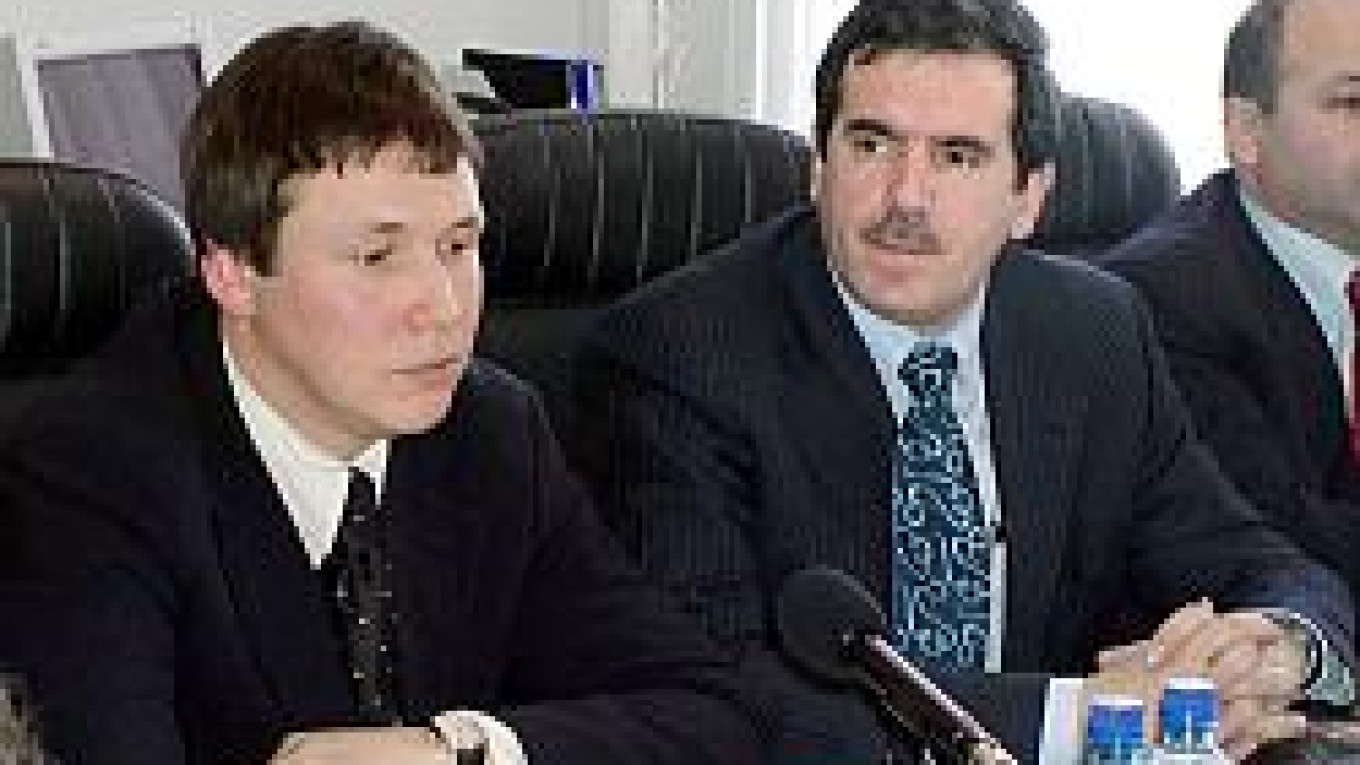While Chechen authorities usually lash out at Arabs in Chechnya as foreign mercenaries, they have embraced Sabsabi, a native of Syria, as one of their own and recently appointed him as their envoy to Moscow.
Sabsabi said part of his new job is to help make sure the Chechen presidential vote to replace Kadyrov on Sunday is free and fair. The election is expected to be easily won by Kremlin-backed candidate Alu Alkhanov.
Sabsabi said observers from the Organization for Security and Cooperation in Europe will monitor the election. He said he has also invited observers from the Islamic Conference and League of Arab States.
The post of Moscow envoy does not give Sabsabi much power to decide policy issues. Those decisions, he said, are made in Moscow. "We wanted to keep all the taxes collected from Chechnya, but the Finance Ministry said this is not possible. They explained that everything must go through the center," he said in a recent interview. "We just want to make sure they all come back, so we can rebuild what was destroyed."
Sabsabi said he is in constant touch with acting Chechen President Sergei Abramov, and Kadyrov's son Ramzan, the republic's first deputy prime minister.
"We're all part of the team of the late Akhmad Haji," he said, referring to Akhmad Kadyrov, who was killed by a bomb during Victory Day celebrations on May 9.
Sabsabi said he, too, was scheduled to attend the Victory Day parade. He was with Kadyrov in Moscow a few days before, but his flight back to Grozny was delayed and he missed the parade.
Sabsabi, 40, moved to Grozny in 1989 after finishing a degree in international journalism at the state university in Leningrad, now St. Petersburg. In 1991, he taught Middle East history at Grozny University. That same year, he received Russian citizenship.
In 1992, he went to work in the then relatively sovereign republic's Foreign Ministry under Dzhokhar Dudayev's administration. Through that job, he met Kadyrov in 1993, and the two remained friends until his death. Kadyrov was then the head of a religious school, and Sabsabi helped get the necessary paperwork for students who wanted to study Islam abroad, in countries like Egypt, Morocco, Uzbekistan and Syria.
Many worry that Moscow's harsh attitude toward predominantly Muslim Chechnya will make it the enemy of Muslim states.
Sabsabi dismisses such concern, again, with unwavering loyalty to Kadyrov, and Kadyrov's political patron, President Vladimir Putin. "From the moment Putin named Akhmad Haji, a former mufti, as head of the administration, that's enough for Muslim and Arab societies to understand that this is no war against Islam," he said.
A more routine part of his job as envoy, Sabsabi said, is to act as a sort of big brother to young Chechens studying in Moscow, keeping tabs on them to protect them from police harassment. "We'll have a section to check up on students, talk to their deans and professors. ... We won't need the police," he said.
"We're preparing personnel for Chechnya," he added. "Foreigners come and they can't find translators, people who know what's to the left and what's to the right."
Sabsabi's parents remain in Syria. There, his family is part of a blue-blooded class whose roots, it is believed, trace back to Mohammed.
Sabsabi has two sons, aged 10 and 15, both of whom he has sent to boarding school in England.
A Message from The Moscow Times:
Dear readers,
We are facing unprecedented challenges. Russia's Prosecutor General's Office has designated The Moscow Times as an "undesirable" organization, criminalizing our work and putting our staff at risk of prosecution. This follows our earlier unjust labeling as a "foreign agent."
These actions are direct attempts to silence independent journalism in Russia. The authorities claim our work "discredits the decisions of the Russian leadership." We see things differently: we strive to provide accurate, unbiased reporting on Russia.
We, the journalists of The Moscow Times, refuse to be silenced. But to continue our work, we need your help.
Your support, no matter how small, makes a world of difference. If you can, please support us monthly starting from just $2. It's quick to set up, and every contribution makes a significant impact.
By supporting The Moscow Times, you're defending open, independent journalism in the face of repression. Thank you for standing with us.
Remind me later.


